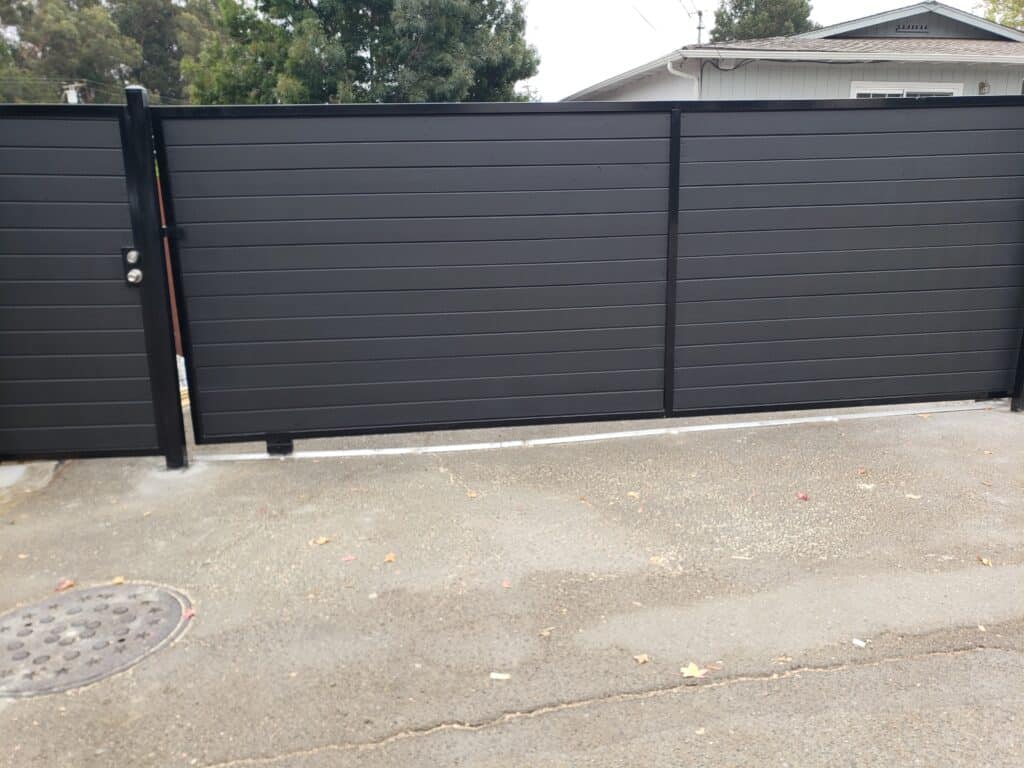[ad_1]
If you’re looking to install a sliding driveway gate at your home or business, then you’re likely in the market for a sensor to control its movement. These sensors are essential to ensure that the gate opens and closes at the right times and that it won’t cause any damage or harm to people or property. However, with so many different types of sensors on the market, it can be hard to figure out which one is the right one for your needs. In this article, we’ll take a look at what you should consider when choosing a sliding driveway gate sensor and provide answers to some frequently asked questions.
1. Purpose
The first thing to consider is why you want a sliding driveway gate sensor. There are different types of sensors available, including magnetic sensors, safety sensors, and infrared sensors. Magnetic sensors are ideal for detecting when a vehicle is approaching, while safety sensors are used to detect an obstruction in the path of the gate. Infrared sensors work by sending out a beam of light that, when interrupted, signals the gate to open or close.
2. Type of Gate
The type of gate you have will also play a role in determining what type of sensor you need. For example, if you have a heavy gate, you’ll want a sensor that can handle the weight and size. If you have a gate that swings open, then an infrared sensor might be your best choice.
3. Budget
Another important factor to consider is your budget. Sensors come at different price points, so you’ll need to determine which features are most important to you and how much you’re willing to spend. While it’s tempting to go for the cheapest option, keep in mind that the sensor’s quality may suffer if you do.
4. Installation
Finally, you’ll need to consider the installation process. Some sensors require professional installation, while others are designed for easy DIY installation. You’ll want to make sure that you have the necessary tools and skills before attempting to install a sensor yourself.
Now that you have a general idea of what to consider when choosing a sliding driveway gate sensor, let’s take a closer look at some of the frequently asked questions about these sensors.
FAQs
1. How do sliding driveway gate sensors work?
Sliding driveway gate sensors work by detecting movement or obstructions in the path of the gate. Once the sensor detects an obstruction, it sends a signal to the gate to stop or reverse its movement, preventing damage or injury.
2. What are some of the most popular types of sliding driveway gate sensors?
The most popular types of sliding driveway gate sensors include magnetic sensors, infrared sensors, and safety sensors.
3. What is the most affordable sliding driveway gate sensor?
The most affordable sliding driveway gate sensor is a magnetic sensor, which typically costs between $10 and $50.
4. What is the most expensive sliding driveway gate sensor?
The most expensive sliding driveway gate sensor is a wireless sensor that can cost several hundred dollars. These sensors are the most sophisticated and offer the most advanced features, such as remote control and smartphone compatibility.
5. Can I install a sliding driveway gate sensor myself?
Many types of sliding driveway gate sensors are designed for easy DIY installation. However, for more complex systems, you may need the help of a professional installer.
6. How long do sliding driveway gate sensors last?
The lifespan of a sliding driveway gate sensor will depend on its quality and how often it’s used. Most sensors can last several years before needing to be replaced.
7. How do I maintain my sliding driveway gate sensor?
To maintain your sliding driveway gate sensor, you should keep it clean and free of debris. You should also check the sensor regularly to ensure that it’s functioning properly and replace any worn or damaged parts as needed.
Conclusion
Choosing the right sliding driveway gate sensor is an important decision that can help keep your property safe and secure. When selecting a sensor, it’s important to consider its purpose, the type of gate you have, your budget, and the installation process. With these factors in mind, you’ll be able to find a sensor that meets your needs and gives you peace of mind.
[ad_2]


